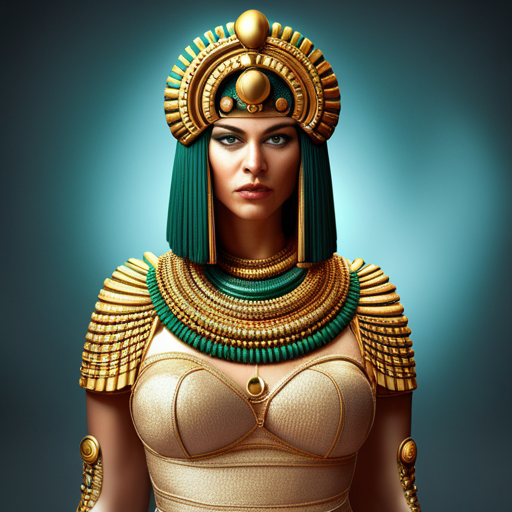Introduction:
Cleopatra VII, the last Pharaoh of Egypt, remains one of history's most captivating figures. Known for her intelligence, beauty, and charisma, Cleopatra's legacy has been surrounded by myths and misconceptions. This article delves into some of the most intriguing and lesser-known facts about this remarkable woman.
1. Multilingualism and Scholarly Pursuits:
Cleopatra was not only fluent in Egyptian, but also spoke Greek, which was the language of the ruling class at the time. She was a highly educated woman, well-versed in mathematics, philosophy, and literature. Her ability to communicate with various cultures contributed to her political acumen.2. Her Exotic Beauty:
Contrary to the popular depiction of Cleopatra as a stunning seductress, historical records suggest that her allure was not just about physical appearance. Her charm was rooted in her intelligence, wit, and charisma. She used her captivating personality to influence powerful men like Julius Caesar and Mark Antony.3. Ptolemaic Family Intrigue:
Cleopatra's lineage was entwined with a history of family rivalries and alliances. She was a part of the Ptolemaic dynasty, a Greek dynasty that ruled Egypt after Alexander the Great's conquest. In order to secure her position, Cleopatra often had to navigate treacherous waters of familial intrigue and power struggles.4. Naval Battle Tactics:
During her alliance with Julius Caesar, Cleopatra played a strategic role in the Alexandrian War. She used her knowledge of naval warfare to assist Caesar in his victory, even going so far as personally participating in the battle by leading her own ships.5. Political Savvy:
Cleopatra was not just a figurehead; she actively engaged in political affairs. She developed a close relationship with both Julius Caesar and Mark Antony, which allowed her to exert significant influence over their decisions. Her ability to navigate the complex political landscape of the time showcased her intelligence and resourcefulness.6. Love and Tragedy with Mark Antony:
Cleopatra's relationship with Mark Antony is legendary. Their love affair led to both political alliances and personal tragedy. Cleopatra's decision to align with Antony in opposition to Octavian (later known as Augustus) ultimately led to their defeat at the Battle of Actium, marking the end of their reign and lives.7. Philosopher and Alchemist:
Cleopatra was known to have a keen interest in philosophy and alchemy. She corresponded with leading philosophers of her time, engaging in intellectual discussions about various subjects. Additionally, she was believed to have been involved in alchemical experiments, exploring the transformation of materials.8. Myth of the Asp:
One of the most enduring myths about Cleopatra is her alleged death by asp (a venomous snake). However, historical evidence is inconclusive, and some sources suggest that she might have died from poison rather than a snakebite. The myth, nonetheless, has persisted and become an iconic part of her story.Conclusion:
Cleopatra's life is a tapestry of intricate political maneuvers, intellectual pursuits, and complex relationships. Beyond the surface of her beauty and allure, she was a multifaceted and brilliant woman who left an indelible mark on history. The legacy of Cleopatra continues to fascinate and inspire, reminding us of the power of intelligence, charisma, and determination in the face of adversity.


